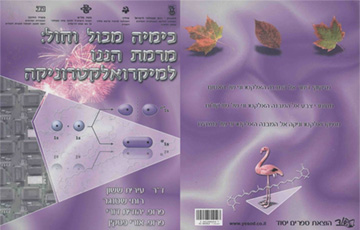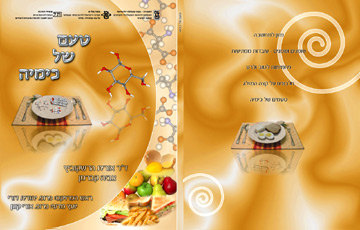 Chemistry
Chemistry
The Quality of Air around Us module encompasses five independent topics: nitrogen oxides (NOx), sulfur oxides (SOx) and particles, carbon oxides and the greenhouse effect, ozone layer depletion, and odor: inconvenience or pollution?
The module is based on: integration of environmental and social aspects (the STES principle); exploring a familiar (local or global) event as an opening case study for each one of the five topics; using relevant scientific journals or newspaper articles; introducing basic concepts in ecology, such as a system and its component, equilibrium, and positive and negative feedback; and fostering higher-order cognitive skills, critical thinking, asking questions, judging values, solving problems, and using creativity.
Researchers: Prof. Yehudit Dori, Dr. Orit Herscovitz
Advisor: Dr. Dorit Baum
2011-2012

The module Chemistry−from the Nanoscale to Micro- electronics is oriented toward overcoming difficulties that students in high school, college and universities have with learning quantum mechanics. The module emphasizes how different systems, such as atoms, molecules and solids, behave according to the same quantum mechanics rules. This approach broadly exposes the students to different scientific concepts and to relevant technological applications.
In addition, the teaching methodology, which emphasizes the common grounds for phenomena in different fields, demonstrates to students that transfer of knowledge across various domains is a powerful tool for understanding basic science concepts and their relevant applications.
Researchers: Dr. Irit Sasson, Ruth Shtanger, Prof. Yehudit Dori, Prof. Uri Peskin
July 2007

The Taste of Chemistry module integrates chemical con- cepts and processes of food chemistry with focus on nutritional, health and social aspects, as well as higher order thinking skills. The module is aimed at teaching 11th grade chemistry majors; those who are expected to become thoughtful citizens in a scientific- and technology-oriented society, and those who are likely to choose a science or engineering career. As citizens, they will be required to ask critical questions, read papers, analyze data, and seek answers to science-based societal questions which would form the basis for making judicious decisions. The context-based approach was the central pillar of the module, which presented an opportunity for both teachers and students to study chemistry in the context of everyday life.
Researchers: Prof. Yehudit Dori, Dr. Orit Herscovitz, Dr. Zvia Kaberman, Dr. Shirly Avargil
Advisor: Prof. Uri Cogan
January 2007
Teacher’s Guides (Hebrew):